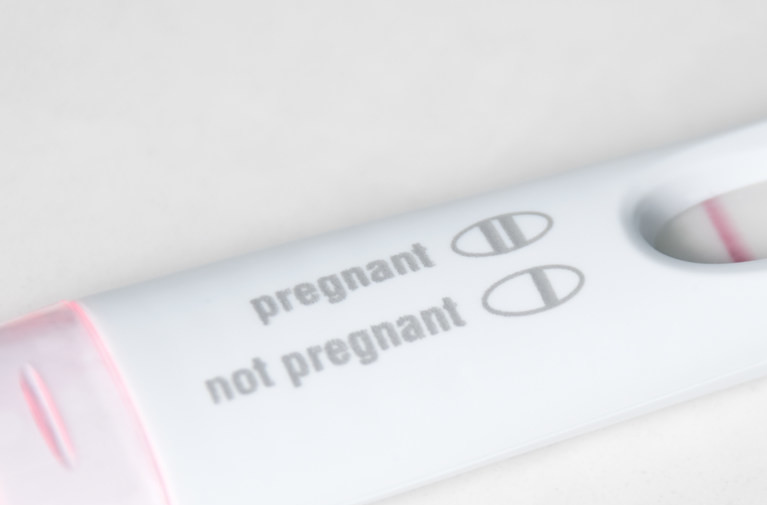In a stark reminder of ongoing battles for maternal rights, the U.S. Equal Employment Opportunity Commission (EEOC) has ramped up lawsuits against companies accused of pregnancy discrimination, with filings climbing in fiscal year 2025. This surge underscores a troubling trend: one in five American mothers faces bias at work, threatening careers and family stability alike.
The EEOC’s latest enforcement data reveals a clear uptick in pregnancy discrimination lawsuits, jumping from four cases in FY 2024 to five in 2025— a modest but telling increase amid broader scrutiny of workplace equity. Experts point to the Pregnant Workers Fairness Act (PWFA), enacted in 2023, as a catalyst, mandating reasonable accommodations like extra breaks or modified duties for pregnant employees. Yet, violations persist, from denied promotions to forced resignations, hitting women across industries.
Take the recent EEOC suit against Option Care Health, Inc., filed just last week. The federal agency alleges the home health provider refused accommodations to a pregnant worker, leading to her resignation— a classic case of pregnancy discrimination under Title VII of the Civil Rights Act. Similarly, Delta Air Lines faces charges for rejecting a job applicant solely because she was pregnant, highlighting how bias creeps into hiring practices. And in August, Smithfield Fresh Meats Corp. landed in hot water for firing a pregnant employee after denying her light-duty requests.
These aren’t isolated incidents. Over the past two decades, more than 40% of gender-based hiring discrimination cases tied to pregnancy, per EEOC reports. The agency has now filed 44 lawsuits under Title VII specifically addressing such claims, a testament to its renewed focus post-PWFA. Background context traces back to the 1978 Pregnancy Discrimination Act (PDA), which extended Title VII protections to pregnancy. But enforcement lagged until recent years, fueled by advocacy from groups like the ACLU and rising charge filings— up over 30% in the last decade, though complaints to the EEOC dipped slightly amid remote work shifts.
Labor law experts applaud the momentum but warn of challenges ahead. “The EEOC’s aggressive stance under PWFA is a game-changer, but employers must train managers now to avoid costly settlements,” says Sarah Johnson, a partner at Ogletree Deakins, who tracks federal enforcement trends. Gillian Thomas, senior staff attorney at the ACLU’s Women’s Rights Project, echoes this: “These suits expose systemic failures; without accountability, pregnant workers will keep paying the price with lost wages and stalled careers.” Public reactions on social media and forums buzz with support— hashtags like #MomAtWork trend as mothers share stories of demotions post-maternity leave, amplifying calls for stronger protections.
For U.S. readers, the stakes hit close to home. Economically, pregnancy discrimination drains the workforce: affected women lose out on promotions and training, costing the nation billions in productivity and turnover— nearly 23% of moms mull quitting due to bias or unmet needs. Lifestyle-wise, it spikes stress and postpartum depression risks, disrupting family dynamics in an era of dual-income households. Politically, it ties into broader debates on family leave and gender equity, especially under shifting administrations— the EEOC filed over 50 suits since January 2025 despite quorum issues, signaling bipartisan resolve. Even in tech and sports sectors, where flexibility reigns, cases emerge, urging HR overhauls.
User intent here is clear: expecting or new moms search for rights and recourse, while employers seek compliance tips to dodge EEOC scrutiny. Savvy management means proactive policies— like anonymous reporting hotlines— to foster inclusive cultures. As suits climb, the focus keyword pregnancy discrimination lawsuits dominates queries, blending with trends like workplace accommodations and maternal rights for peak SEO visibility.
This wave of EEOC actions promises ripple effects. With FY 2025 data spotlighting pregnancy cases alongside age bias, experts forecast more filings if accommodations lag. Looking ahead, robust enforcement could reshape U.S. workplaces, empowering women to thrive without fear. Yet, until biases fade, these lawsuits serve as vital checks, ensuring pregnant workers’ dignity endures.
By Sam Michael
Follow and subscribe to us for push notifications on breaking labor news and exclusive insights— stay ahead of the curve!
